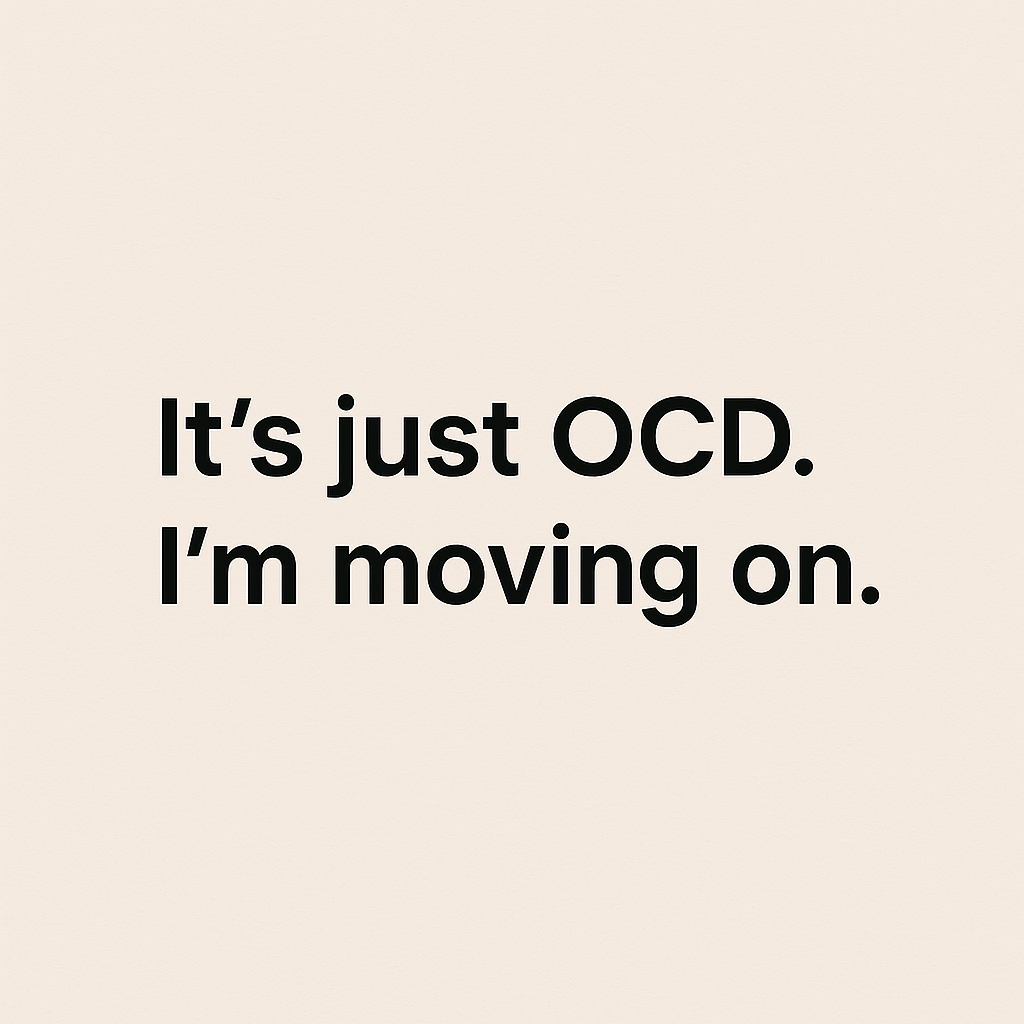OCD Acceptance
What if, instead of constantly fighting your OCD, you could accept it, and even learn to appreciate it? This shift in mindset can be transformative.
What “Loving” Your OCD Really Means
Rather than seeing OCD solely as a burden, what if you had OCD acceptance and viewed it as a part of who you are? It might sound strange, but there are positive aspects to OCD that you may have never considered. While you might initially think, “There’s nothing positive about this debilitating condition,” stay with me for a moment.
Take a moment to reflect: What does your OCD say about you?
It often reflects qualities like empathy, care, and caution, traits that your intrusive thoughts may try to convince you are flaws. In fact, these traits are proof of how much you care about others and the world around you.
Your tendency to worry isn’t a weakness; it’s a sign of how deeply you care. The fear of bad things happening reveals a compassion that many people lack. Recognize that your concern about these things actually makes you a better, more thoughtful person.
The Power of Full OCD Acceptance
The key to living with OCD is to fully accept that it is part of you. Many people spend endless hours learning about OCD, but they continue to fear and obey their intrusive thoughts. The question is: Have they truly accepted that it’s just OCD?
When you accept that what you’re experiencing is OCD, something powerful happens: you stop fearing your thoughts. You stop letting them control your actions. Instead, you can experience the thoughts without succumbing to rumination or compulsions. It’s not about eliminating the thoughts; it’s about changing how you respond to them.
Stop Obeying OCD
There’s no avoiding the fact that OCD will try to convince you to obey certain thoughts or rituals, even when there’s no evidence to support them. But once you accept that these compulsions and intrusive thoughts are symptoms of a condition, you can start to view them differently.
You no longer have to obey or fear them. Instead, you can learn to live alongside them, not as something that controls you, but as a small nuisance that’s part of your unique nature.
Celebrate What Makes You Unique
Take a moment today to celebrate what makes you who you are.
- Appreciate how much you care.
- Recognise how you go the extra mile for others.
- Acknowledge the times you’ve worried over something, only to find that everything turned out fine.
The things you fear most often don’t come true, but that doesn’t make you weak, it shows how deeply you care.
Recognise that you’ve been carrying the weight of unnecessary fear, and it’s time to stop living in fear of your thoughts. Try saying:
“I’m going to accept my OCD. I’m not going to live in fear or obey my thoughts anymore.”
It’s a risk worth taking, although there’s really no risk at all. You’ll find that the lie you’ve been believing all along is no longer convincing.
The Importance of Self-Compassion
By embracing your OCD, you open the door to self-compassion. Your fears, compulsions, and intrusive thoughts don’t define you. They are simply part of your condition, and you can learn to live with them rather than let them control you.
Why You Should Embrace and Love Your OCD
Loving your OCD doesn’t mean enjoying the struggles it brings. It means acknowledging that OCD is part of who you are, and you can learn to live with it. Accepting your OCD helps you see the positive qualities it reflects in you, traits like empathy, care, and a deep concern for others.
You may feel that your tendency to overthink and worry holds you back, but these traits aren’t flaws. The intrusive thoughts we have often stem from the fear that we might be capable of bad things, but this fear actually comes from how much we care, not from any real intention to harm. Your concern for others and your desire to protect them shows how deeply you care.
Loving your OCD is about embracing the person you are, a compassionate, thoughtful individual with the strength to grow. You don’t have to live in fear or keep ruminating. Start celebrating the unique, caring person you’ve always been, even in the face of OCD.
Take Action Today
Remember, embracing your OCD is not about liking the struggles it brings, but recognising that it’s a part of who you are and finding peace with it. Try the practice of acceptance today, and see how your relationship with OCD can transform.
If you’ve had similar experiences or have questions, feel free to share your thoughts in the comments below. Together, we can help support and understand each other on this journey.

Leave a Reply